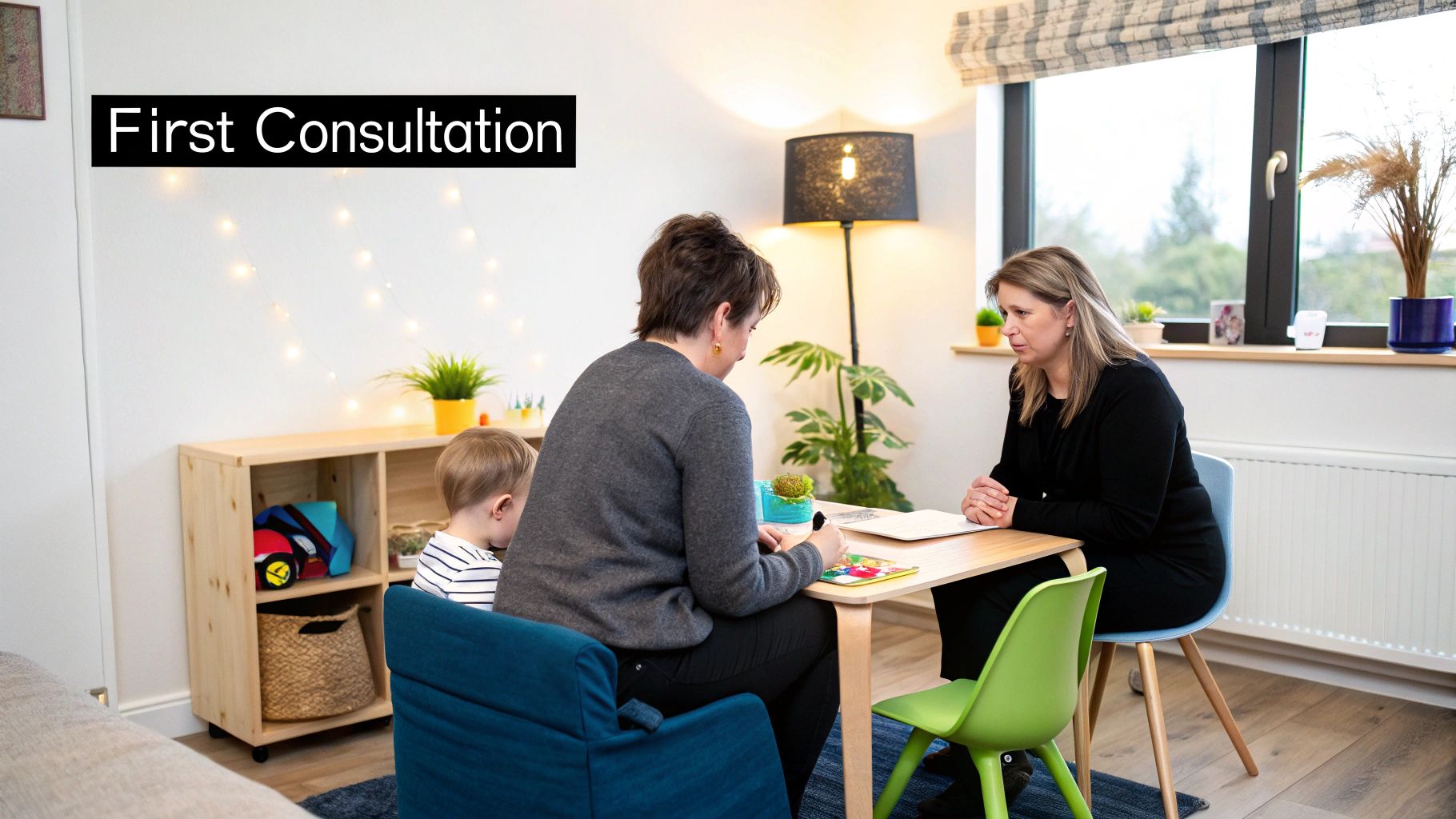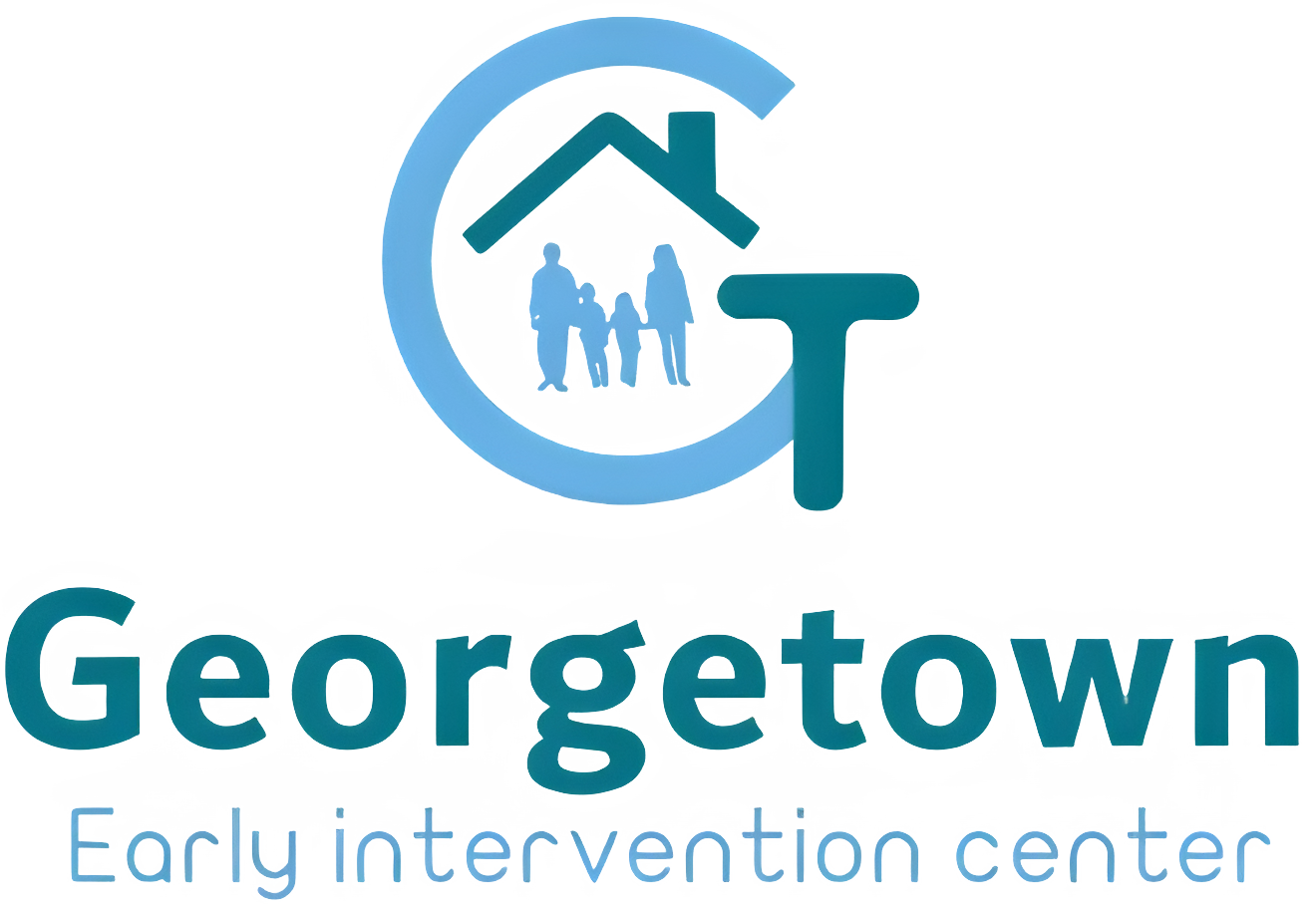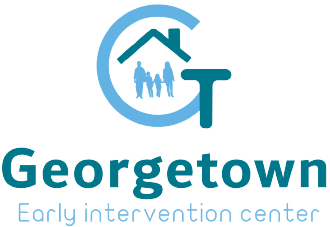When you find yourself typing "speech therapy near me" into a search bar, it's more than just a query. It’s the first step on a deeply personal journey, whether for you or someone you love. You're not just looking for a service; you're looking for a partner who can help turn communication goals into reality. My goal here is to help you transform that search from an overwhelming task into a clear, confident process.
Starting Your Search for the Right Speech Therapist

Embarking on this path can feel a little daunting, but it’s an incredibly positive and proactive step toward building stronger communication skills. Modern speech therapy is a vast field, helping people of all ages with a huge range of challenges. It's so much more than just correcting a lisp.
For instance, a speech-language pathologist (SLP) might work with:
- A toddler with a speech delay, helping them say their very first words.
- A school-aged child struggling with stuttering or articulating certain sounds.
- An adult who is regaining their language abilities after a stroke.
- A professional who wants to refine their clarity and confidence in public speaking.
The need for this kind of support is far more common than most people think. Communication disorders affect around 40 million Americans, which is about 12% of the population. Among children, roughly 5% of first-graders have noticeable speech difficulties that could benefit from intervention. You can learn more about these speech and language disorder statistics to get the full picture.
Understanding Your Options
Before you start scrolling through a list of local providers, it’s really helpful to get a feel for the different types of speech therapy available. The best choice is completely dependent on specific needs, goals, and even personality. Some people thrive in a one-on-one private setting, while others might do better in a specialized clinic or group session.
Your goal isn't just to find any therapist; it's to find the right partner for your specific journey. This means considering their specializations, their therapy style, and the kind of environment they create.
Take a moment to think about your primary goal. Is it helping a young child build foundational language skills? Or is it addressing a complex swallowing disorder in an adult? A therapist specializing in early childhood intervention will likely use a play-based approach that’s perfect for a toddler. On the other hand, a therapist with a background in neurology would be the best fit for an adult recovering from a stroke.
Where You Can Find Support
That simple search for "speech therapy near me" is going to pull up a lot of different options. Each setting offers a unique experience and is often better suited for certain needs.
Here's a quick look at the most common places you'll find speech therapy services and who they're best suited for.
Comparing Local Speech Therapy Providers
| Provider Type | Best For | Typical Setting | Key Consideration |
|---|---|---|---|
| Private Practice Clinics | Individualized care for specific disorders like stuttering, apraxia, or articulation. | Small, focused clinic environment. Often offers both one-on-one and group sessions. | Tends to be highly specialized. Look for a practice that focuses on your specific area of need. |
| Hospitals & Rehab Centers | Medical-based needs, like post-stroke recovery, brain injury, or swallowing disorders (dysphagia). | Clinical, integrated with other medical services. | Ideal if therapy is part of a larger medical recovery plan. |
| University Clinics | Cost-effective services for a wide range of common communication disorders. | Educational setting, supervised by experienced professors. | Services are provided by graduate students, which means you get access to the latest methods. |
| School-Based Services | Children whose communication challenges directly impact their academic performance. | Within the child's public or private school. | Goals are tied to the educational curriculum (IEP). May not be as intensive as private therapy. |
| Teletherapy Platforms | Flexibility, convenience, and access to specialists outside your immediate geographic area. | Online, via video calls from your own home. | Great for busy schedules, but requires a reliable internet connection and a quiet space. |
Each of these options has its own strengths. A private clinic might offer the most personalized plan, while a university clinic could be a more affordable way to access high-quality care. Thinking about which environment feels like the best fit is a great first step in narrowing down your search.
Where to Find Qualified Local Therapists

Starting the search for "speech therapy near me" can feel a bit overwhelming at first. You'll get a ton of results, but the trick is to quickly zero in on the best ones. A simple online search is a good first step, but the most trusted recommendations almost always come from professionals who already know your situation.
Your best bet is to start with the healthcare professionals you already have a relationship with. Your family doctor, pediatrician, or even a neurologist is an excellent resource. They keep a network of specialists they trust and can point you to a speech-language pathologist (SLP) whose expertise lines up with your specific needs—whether that's for a child with a speech delay or an adult recovering from a stroke.
Tapping into Professional Networks
Beyond your personal doctor, professional organizations are your next best friend. They offer powerful tools for finding certified therapists, and these directories are basically databases of pre-vetted professionals. It’s a great way to ensure anyone you find meets strict standards.
The gold standard here is the American Speech-Language-Hearing Association (ASHA). Their ASHA ProFind tool lets you filter SLPs by location, specialty, and the age groups they work with. This is your guarantee that you’re connecting with therapists who hold the Certificate of Clinical Competence (CCC-SLP), which is the key credential you want to see.
Comparing Different Therapy Settings
Once you have a few names, it’s time to think about where the therapy actually happens. The environment itself plays a huge role in the experience, and the best fit really depends on your goals, budget, and learning style.
Let's look at a couple of common scenarios:
Private Practice Clinics: These clinics are often highly specialized. If you’re dealing with a specific challenge like apraxia of speech or stuttering, you can find a private practice therapist who dedicates their entire career to that one area. This means you get a super personalized therapy plan.
University Training Programs: Many universities with communication sciences departments run clinics that are open to the public. In these settings, graduate students provide the therapy, but they're always under the direct supervision of experienced, licensed professors. This can be a fantastic, more affordable option that also gives you access to the latest, research-backed techniques.
Remember, the setting shapes the service. A private clinic offers deep specialisation, while a hospital setting provides integrated medical care. A university programme offers cutting-edge approaches, often at a lower cost.
It’s also smart to look at hospital outpatient departments, especially for medical-related speech issues. For instance, about 25-40% of stroke survivors develop aphasia, a disorder that messes with speech and comprehension. A hospital-based SLP is in the perfect position to work alongside other medical pros to build a cohesive recovery plan.
Your goal here is to build a solid list of three to five promising candidates. A good mix of personal referrals and names from professional directories will give you a well-rounded group to start vetting more closely. This way, you're moving beyond a generic search and making a truly informed choice.
Alright, you've got a list of potential therapists. Now the real work begins.
Moving from a broad "speech therapy near me" search to a focused investigation is where you'll find the perfect fit. This is the part where you dig in, ask the tough questions, and make sure the professionals on your list have the right expertise for your unique situation.
Checking the Must-Haves: Credentials and Specializations
First things first, let's talk credentials. In the world of speech therapy, a couple of qualifications are completely non-negotiable. You're looking for a state license and the Certificate of Clinical Competence (CCC-SLP) from the American Speech-Language-Hearing Association (ASHA).
Think of these as your baseline for quality. They aren't just letters after a name; they're your proof that a therapist has met rigorous academic and clinical standards.
With that out of the way, it's time to match their specific expertise to your needs. Speech therapy is a massive field. A therapist who is brilliant at helping adults recover from aphasia after a stroke will use entirely different methods than one who specializes in pediatric feeding disorders.
For instance, if your child is dealing with apraxia of speech, you absolutely want a therapist who lives and breathes motor planning therapies. Or, if you're helping a loved one with dysphagia (swallowing difficulties), a therapist with a background in a hospital or medical setting is going to be your best bet.
Don't ever feel shy about asking direct questions. A good therapist is always happy to talk about their background and explain exactly how their skills align with your goals.
It's also a reality that the availability of specialists isn't the same everywhere. Speech-language pathologists are the heart of the therapy world, but their numbers vary wildly from state to state. While places like California and Texas have a high number of SLPs, some areas are much better served per capita than others. This can definitely impact your ability to find highly specialized care. You can discover more about SLP distribution insights on AdvancedTherapyClinic.com.
Your Pre-Consultation Game Plan
Before you commit to a full consultation, a quick phone call or email can save you a ton of time. This is your chance to screen candidates with smart, targeted questions that go way beyond just scheduling and insurance.
Think of it as a mini-interview. Use this checklist to guide that first conversation:
- Experience with Similar Cases: "Could you tell me about your experience working with children with articulation delays like my son's?"
- Therapeutic Philosophy: "What's your general approach to therapy? Is it more play-based, highly structured, or somewhere in between?"
- Tracking Progress: "How do you measure progress, and how often will we get updates from you?"
- Family Involvement: "How do you see parents or caregivers fitting into the therapy process?"
The answers you get will give you a powerful gut feeling about their professional style and whether it clicks with what you're looking for. This quick screening process ensures that the consultations you do schedule are with your most promising candidates. It’s all about working smarter, not harder.
Making the Most of Your First Consultation

Okay, you've done the research, made the calls, and now it's time for the first face-to-face meeting. This initial consultation is where it all comes together. Think of it less like a formal interview and more like a collaborative chat to see if this therapist is the right partner for your family's journey.
You’re both trying to see if your goals, communication styles, and expectations are on the same page.
The conversation will likely cover a lot of ground. The therapist will want to hear your concerns in your own words, go over any relevant history or past evaluations, and share their initial thoughts. This often involves a preliminary assessment—which might be a structured set of questions or a more informal, play-based observation, depending on your child's age and personality.
Questions That Go Beyond Logistics
Sure, you’ll talk about scheduling and insurance, but the real value of this meeting comes from digging into the therapist's approach. This is your chance to ask questions that reveal their philosophy and get a feel for how they’d work specifically with you or your child. Their answers will tell you a lot.
Try asking things like:
- "Could you walk me through an example of how you would tailor a therapy plan for my child's specific struggles with articulation?"
- "How do you typically involve families in the therapy process? What would that look like for us from week to week?"
- "What methods do you use to track progress, and how often would we sit down to review those milestones?"
What you're listening for are answers that feel specific, confident, and personalized. Vague, cookie-cutter responses are a major red flag.
Spotting Potential Red Flags
Just as important as asking good questions is knowing what to listen for. A great therapist is transparent, relies on data, and sees you as part of the team. If you get the sense that a professional is offering a generic, one-size-fits-all plan, be cautious.
A key red flag is a therapist who seems vague about how they measure success. Effective therapy is built on clear, measurable goals, and you should feel confident that progress will be tracked carefully from day one.
Another thing to watch for is a communication style that just doesn't sit right with you. Do they really listen when you talk about your concerns, or do they dominate the conversation? The best therapeutic relationships are true partnerships.
You should walk away from that first meeting feeling heard, understood, and genuinely optimistic about the path forward. This consultation sets the tone for everything to come, so trust your gut.
Navigating Costs, Insurance, and Online Therapy

Finding a therapist who connects with you or your child is a huge win. But for therapy to be sustainable long-term, it has to work from a practical standpoint, too. Getting a handle on the financial and scheduling side of things right from the start saves you from future headaches and ensures the plan fits your family’s budget and lifestyle.
Let's talk money first. The cost for a single session can swing wildly depending on where you live, the therapist's credentials, and the specific services you need. My advice? Before you even schedule a consultation, call the clinic’s front desk and ask point-blank for their private pay rates.
This number gives you a solid baseline. From there, you can figure out how much your health insurance might chip in to cover the costs.
Demystifying Your Insurance Coverage
Trying to understand health insurance can feel like decoding a secret language. The good news is, you only need to know a few key terms to get the answers you need. The best first step is always to call the member services number on the back of your insurance card and ask them directly about your plan’s coverage for speech-language pathology services.
Be ready with these specific questions:
- Are an initial evaluation and ongoing speech therapy covered services?
- Do I need a referral from my primary care doctor for coverage to kick in?
- What is my deductible? (This is the amount you have to pay yourself before your insurance starts paying.)
- What is my co-pay or co-insurance for each session? (This is your fixed, out-of-pocket cost per visit.)
- Is there an annual limit on the number of covered sessions?
Getting clear, direct answers here is the key to accurately predicting what you'll actually be paying.
The Rise of Online Speech Therapy
Beyond just the dollars and cents, technology has completely opened up new ways for therapy to be delivered. Teletherapy—or online speech therapy—has become a seriously popular and effective alternative to traditional office visits. For busy families, this flexibility can be an absolute game-changer.
This move toward more accessible, tech-driven care is a big reason the speech therapy market is booming. The industry was valued at roughly USD 5.29 billion in 2025 and is projected to hit USD 9.08 billion by 2032. You can discover more insights about the U.S. speech therapy market to see just how fast this area is growing.
Key Takeaway: Online therapy isn't a "lesser" option. For many families, it's actually more effective. It cuts out travel time, opens up scheduling possibilities, and connects you with specialists who might be hundreds of miles away.
Of course, the best choice really comes down to the individual. Someone who thrives on face-to-face interaction or needs more hands-on therapeutic techniques might do better in a traditional clinic. On the other hand, a child who is more relaxed and focused in their own home could make incredible progress with online sessions. Weighing the pros and cons of both is a final, crucial step in finding the perfect fit.
Got Questions About Finding a Speech Therapist? Let's Unpack Them.
Diving into the world of speech therapy can feel like learning a new language, and it’s completely normal to have a ton of questions. As you start looking for "speech therapy near me," you're probably wondering about timelines, different types of therapists, and what success actually looks like.
Let's get you some clear, straightforward answers to the questions we hear most often from families.
How Long Does Speech Therapy Usually Last?
This is the classic "it depends" question, but for good reason. There’s truly no one-size-fits-all timeline because every single person's journey is unique. The duration really hinges on the specific goals, the complexity of the communication issue, and how quickly the individual makes progress.
For instance, a child struggling with a minor articulation problem, like mastering the tricky "r" sound, might just need a few months of focused work. But for an adult recovering from a stroke that caused severe aphasia, therapy could be a supportive tool for a year or even longer.
Any good therapist will start by mapping out a treatment plan with estimated timelines and clear, measurable goals. They’ll also be ready to adjust that plan as things progress.
School-Based SLP vs. Private Therapist: What's the Difference?
Understanding this distinction is a game-changer, especially for parents with school-aged kids.
A school-based SLP has a very specific mission: to help a child overcome communication challenges that get in the way of their learning. Everything they do is tied directly to the child’s Individualized Education Program (IEP) and is focused on making sure they can access the curriculum and succeed academically.
A private therapist, on the other hand, works from a clinical or medical perspective. This gives them the freedom to address a much wider range of communication goals—ones that might not be covered in school. Many families actually use private therapy to give their child an extra boost, supplementing school services or targeting specific life skills.
Here’s a simple way to think about it: A school therapist helps a child participate and succeed in the classroom. A private therapist can work on communication skills for every part of life—at home with family, out with friends, and interacting with the community.
How Will I Know If the Therapy Is Actually Working?
You should be able to see tangible, measurable progress. Right from the get-go, your therapist should sit down with you to set specific, data-driven goals. They should also provide you with regular updates on how your child or loved one is tracking against them.
But the real proof is when you see improvements showing up in everyday life, not just in the therapy room.
This could look like:
- For a child: Their pronunciation is getting clearer, they’re starting to use longer sentences, or they seem less frustrated when trying to talk.
- For an adult: They sound more confident in conversations, have an easier time finding the right words, or can follow along with what others are saying more easily.
Never, ever feel shy about asking for a progress report. A therapist who is confident in their work will be more than happy to walk you through the data and point out the positive changes they're seeing.
Is Online Speech Therapy as Good as In-Person?
For a lot of people, the answer is a big "yes." A growing pile of research confirms that teletherapy is incredibly effective for a whole host of speech and language disorders. Plus, it offers a level of convenience and accessibility that you just can't get with in-person sessions.
It’s particularly great for things like articulation therapy, language development, and even parent coaching. That said, its success really depends on the person’s specific needs, their age, and how well they can engage with a screen.
For some situations, in-person therapy is still the best—and sometimes only—option. This is especially true for conditions that require hands-on help, like certain swallowing disorders or more complex motor speech challenges.
Article created using Outrank





